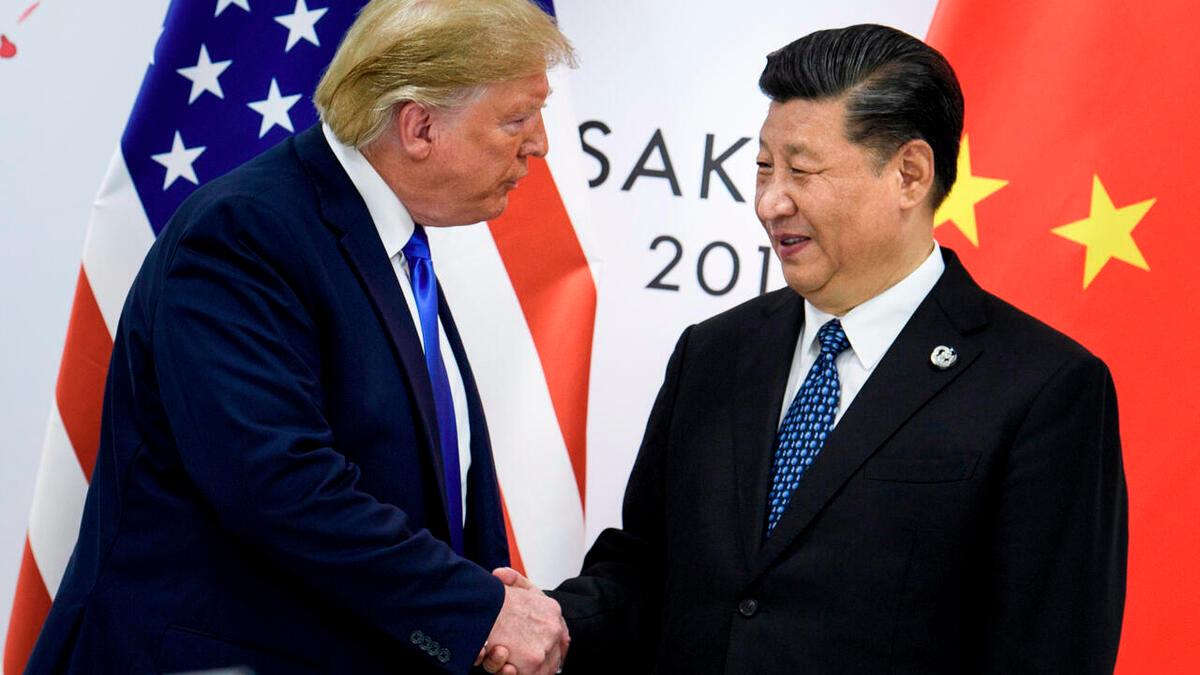WASHINGTON: The United States and China announced Monday an agreement to drastically reduce tit-for-tat tariffs for 90 days, an outcome President Donald Trump dubbed a “total reset” as he said talks with counterpart Xi Jinping could soon follow.
After the first meetings between Washington and Beijing since Trump ratcheted up his trade war, the world's two biggest economies agreed in a joint statement to bring their triple-digit tariffs down to two figures and continue negotiations.
The announcement sent financial markets soaring after weeks of turmoil over tariff fears. Major Wall Street indexes surged, with the broad-based S&P 500 closing 3.3 percent higher.
“Yesterday we achieved a total reset with China after productive talks in Geneva,“ Trump said. “I’ll speak to President Xi, maybe at the end of the week.”
US Treasury Secretary Scott Bessent described weekend discussions with Chinese Vice Premier He Lifeng and international trade representative Li Chenggang as “productive” and “robust” with both sides anticipated to meet again soon.
Trump's fresh duties on many imports from China came up to 145 percent this year, compared to 10 percent for other countries in a global tariff blitz launched last month.
Beijing hit back with duties of 125 percent on US goods.
The United States agreed to lower its tariffs on Chinese goods to 30 percent while China will reduce its own to 10 percent.
These actions take effect at 12:01 am on Wednesday, according to an executive order released by the White House.
The United States also lowered a levy on low-value imports from China that had hit e-commerce sites such as Shein and Temu.
Under Trump’s executive order, “de minimis” items sent through the US Postal Service will be hit with duties of 54 percent of their value, or a $100 payment. The prior tariff had been set at 120 percent.
Bessent told CNBC Monday that he expects United States and Chinese representatives to meet again in the coming weeks to work out “a more fulsome agreement.”
While Washington does not want broad decoupling from China, it seeks “decoupling for strategic necessities,“ Bessent said.
He added to CNBC that the 90-day pause was also done to see what the United States could do about non-tariff barriers weighing on US firms.
China hailed the “substantial progress” made at the talks, held at the discreet villa residence of Switzerland’s ambassador to the United Nations in Geneva.
This move “is in the interest of the two countries and the common interest of the world,“ the Chinese commerce ministry said, adding that it hoped Washington would keep working with Beijing “to correct the wrong practice of unilateral tariff rises.”
With the agreement, China also committed to suspending or removing non-tariff countermeasures.









